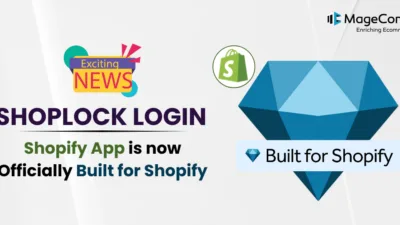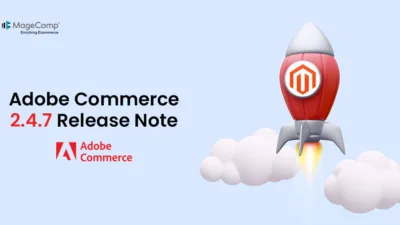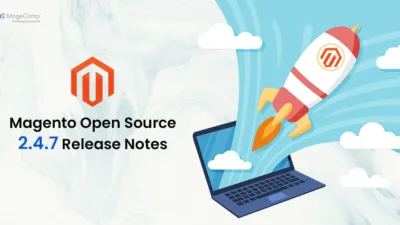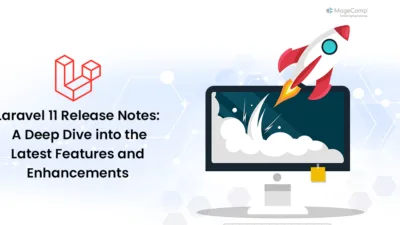The tendency of industrial and technical B2B companies to adopt robustly, yet affordable e-commerce platforms are now more pronounced than ever. According to the latest Forrester report, B2B e-commerce will make up almost a fifth of all B2B sales in the US by 2023, reaching $1.8 trillion. Companies are racing to develop e-commerce capabilities in an attempt to connect their clients to a much larger audience. Another reason for the growth is that B2B buyers are beginning to demand similar high-quality services from B2B companies.
Features of Current B2B Platform Development Services
The salient features of the most reliable B2B platform development services include optimal architecture, customization, infrastructure and environment, relevant module configuration and, of course, e-commerce integration. Let’s discuss a bit more on this,
Architecture and Customization
Product Information Management (PIM) and commerce platforms are developed based on a company’s unique need for agility or longevity. The PIM or commerce back-end is customized with code enabling you to manage data efficiently. Modules are customized to fulfill various functions and give businesses more utility. UNSPSC codes are used to categorize products easily. While many systems work well on their own, CMS and e-commerce integration are recommended to give users a stellar experience as they buy products or browse for educational content.
E-Commerce Integration
New services involve custom integration as well as advanced packages for companies looking for the best and fastest in-class options. Two popular solutions for e-commerce functionality are Magento and Shopify. You can get many benefits of using Product Information Management (PIM) for Magento, which you can read about here.
If your platform has hundreds of SKUs, you might need more than one site administrator to carry out tasks related to corporate and store content. Of course, your clients won’t see any differences within your website apart from a change in the URL.
Popular ECommerce Platform Development Solutions
In this section, we’ll discuss a few popular B2B platform development service solutions. These are Magento, Big Commerce, WooCommerce and Shopify.
Magento
We’ll begin with Magento, which is used for average-sized and big e-commerce sites. It should be set up by an experienced web developer. Magento, which is subscription-based or open-source, is perfect in complicated situations where you have more than one storefront for different parts of your business and a shared product database. The solution is also suitable for complicated freight shipping. It offers a vast marketplace for third-party customizations, many destination shipping configurations, flexible product option configurations, tiered pricing, multiple user groups, and a large developer pool.
On the downside, Magento is costlier to set up and maintain, requires high security and regular PCI scans, and may necessitate long-term training. Many adjustments will require developer support because the templates are not always flexible but Magento Development Company like MageComp provide Dedicate Certified Magento Developer who can handle up rest of thing to develop your powerful magento Ecommerce site.
Shopify
This scalable, subscription-based solution can serve companies of any size, from small businesses to enterprises. The platform can handle traffic spikes and large product volumes with ease. The user-friendly system reduces training expenses. The platform features online support, easy-to-use, extensive online documentation, a vast developer pool, and state-of-the-art tools to integrate e-commerce features into external sites.
Like any other solution, Shopify has its disadvantages. It’s not possible to customize the checkout process or payment gateway, and marketing content customization is limited.
BigCommerce
Next, we’ll look at BigCommerce. Like Magento, it is available as a subscription-based service or standalone software. The dashboard is intuitive and will have your company set up sooner than you think. The software is fully customizable, which enables users to transform their store’s functionality and appearance into a bespoke, useful website. There are no setup or transaction fees. The solution is perfect for enterprises because you can create unlimited staff accounts. It features omni-channel selling to use on Amazon, Facebook, eBay, and other media. The plans include unlimited storage space, bandwidth, and products.
Unfortunately, the choice is minimal when it comes to free themes. Recurring billing is available in the app store, but it doesn’t come with the solution. If you pass your plan’s annual sales threshold, you need to upgrade.
WooCommerce
The last platform development service we’ll review is WooCommerce. This solution runs as a plug-in on WordPress websites. The plug-in is free because the solution is open source. If you choose to use WooCommerce, work with an experienced developer and go for a high-quality hosting service. An entry-level developer may do more harm than good.
Dashboard tools are user-friendly and straightforward and the solution features a large developer pool. Another advantage is WordPress CMS’ high marketing content customizability.
On the downside, numerous extensions or plug-ins can increase the complexity of a website and lead to maintenance issues as the extensions and plug-ins evolve independently over time.
Augment your Business with E-Commerce Functionality
2020 is the year to add e-commerce capabilities to your business’s website if you haven’t done so yet. The number of online versions of B2B e-commerce software is on the rise, helping drive down purchasing and maintenance costs.













